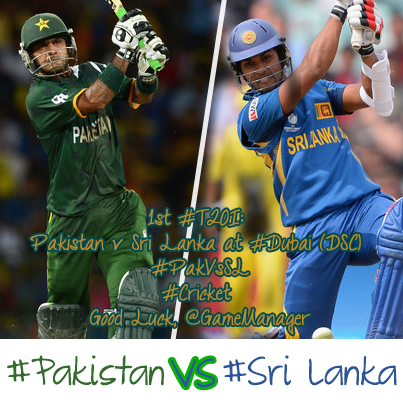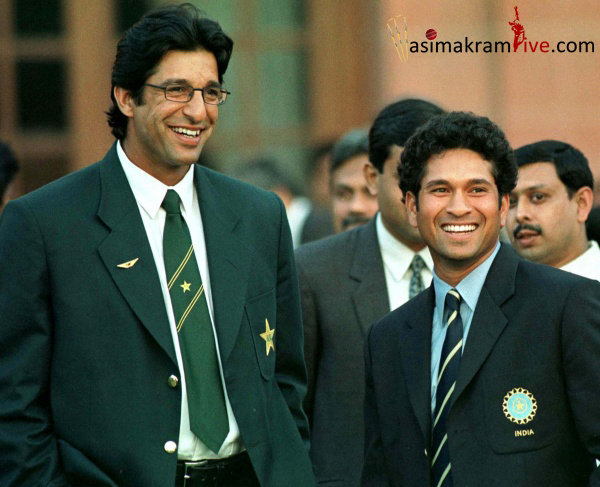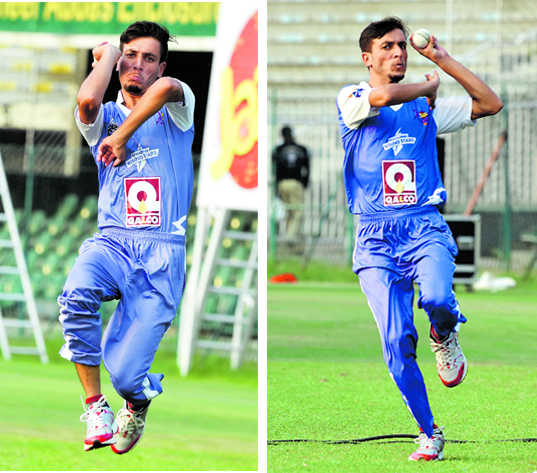Accu-Chek congratulates Wasim Akram
December 5, 2013
Friendly foes await Sri Lanka – Pakistan v Sri Lanka 2013-14
December 10, 2013Fast bowling, for me, died the day Wasim Akram retired from cricket. Batting has just recently passed away along with the retirement of Sachin Tendulkar. Cricket obviously moves on but for people belonging to my generation, Tendulkar was the last of an era of classical cricket. An era that saw some of the greats of the game compete at a level of competence and technique, which may never be equalled by modern day players.
Today, when the game has become increasingly easy for all that are related to it, be it the UDRS (Umpire Decision Review System), enhanced coaching and training facilities or the computerised research and analysis facilities used to better techniques of cricketers, the level of the game has somewhat come down.
To set a target of above 300 runs and then witness it being chased down with overs and wickets to spare have become a norm that is a testament of my statement above. Of course it can very well be perceived the other way round as well but in my opinion, there should always be an equal contest between bat and ball which is something that is missing in modern day cricket.
Rules have changed a lot over the last 10 years and so have the opportunities to make more runs and take more wickets. Cricket is being played in more countries and in more formats than ever before. Careers have been shortened and quality compromised due to the excess amount of games going around at all times.
I remember the time when we used to argue about who is better, Rashid Latif or Moin Khan. A single collection not made well behind the stumps by either of them was criticised very heavily and considered a justification for the dropped one to be part of the side again. Wicket keepers like Adam Gilchrist and Mark Boucher were literal examples of the idiom ‘safe as a house’ behind the stumps. Today unfortunately, I do not find a single wicket keeper who I can call a ‘natural’ in the art. Most of the ones operating today are either part timers, selected in the side because of their batting skills more than wicket keeping or holding on to the position just because there’s nobody else waiting in the wings to challenge them for the designation.
Sachin Tendulkar, inarguably the best batsman to have ever graced the cricketing field was criticised throughout his career for not being able to finish or win matches for his side in crunch times. Batsmen like Steve Waugh, Brian Lara, Inzamamul Haq, Ricky Ponting, Saeed Anwar, Mathew Hayden, Saurav Ganguly, Rahul Dravid, Muhammad Yousuf, Gary Kirsten, Stephen Fleming and many more ruled the pitches and that too in the presence of quality bowling against them. Each batsman knew his role specifically in each format of the game and was considered a specialist at that. All of the mentioned batsmen have had both good and bad days but each one of them had evolved for the better through his experiences and came out as a champion.
I still remember the days when even at the fall of a few early wickets for Pakistan, we never panicked they way we do now because in those days we knew that the great Inzi will sort things out in the middle along with Mohammad Yousuf at the other end, and almost control the run rate at will when at the crease.
T20 cricket has had a very bad impact on the temperament of the modern day batsmen and all they seem to care about is to manage a 100 plus strike rate, even if that means getting out on eight from just four balls.
As far as bowling is concerned, fast bowling was actually ‘fast’ when bowlers like Waqar Younis, Shoaib Akhtar, Alan Donald, Shane Bond and Brett Lee literally steamed in to bowl with speeds constantly around the 100 mph mark. No matter how good a batsman you were, you had to face chin music one day or the other with a roaring short pitch ball coming straight at you. Sadly, there are no steam boats in the ocean of fast bowling operating these days.
Then there was another league of pace bowlers who were literally artists and masters of their trade. Bowlers like Wasim Akram, Glenn McGrath, Courteny Walsh, Curtly Ambrose, Chaminda Vaas, and Shaun Pollock could do almost anything at all with a cricket ball in their hands. It wasn’t only entertaining watching these legends bowl, it was also educational.
There are no more artists in the modern game of cricket. There’s no single bowler in the world that you can compare with the great Wasim Akram or Glenn McGrath. Pace bowlers of today depend on pitch and weather conditions more than their bowling skills which is quite evident when you look at their records.
Similarly, magicians, also known as, spinners cast their spells in an amazing fashion on all cricketing spectators. The school of spin bowling was blessed with teachers like Muttiah Muralitharan, Shane Warne, Anil Kumble, Saqlain Mushtaq, Mushtaq Ahmed and various others. Creativity was at its peak and unlike today, there were instances where a spinner could win matches for his side single-handedly. The above mentioned bowlers share a total of 4,146 wickets between them in all forms of the game. Apart from Saeed Ajmal in modern day cricket, there are no more spinners worthy of being called ‘magicians’.
Modern day cricket has its own set of superstars like the MS Dhoni, Virat Kohli, Dale Steyn and Kevin Pietersen and some of them may even be considered role models for the youth of the present generation. However, for me at least, the classic era of the gentlemen’s game is now over.
Courtesy: TRIBUNE




